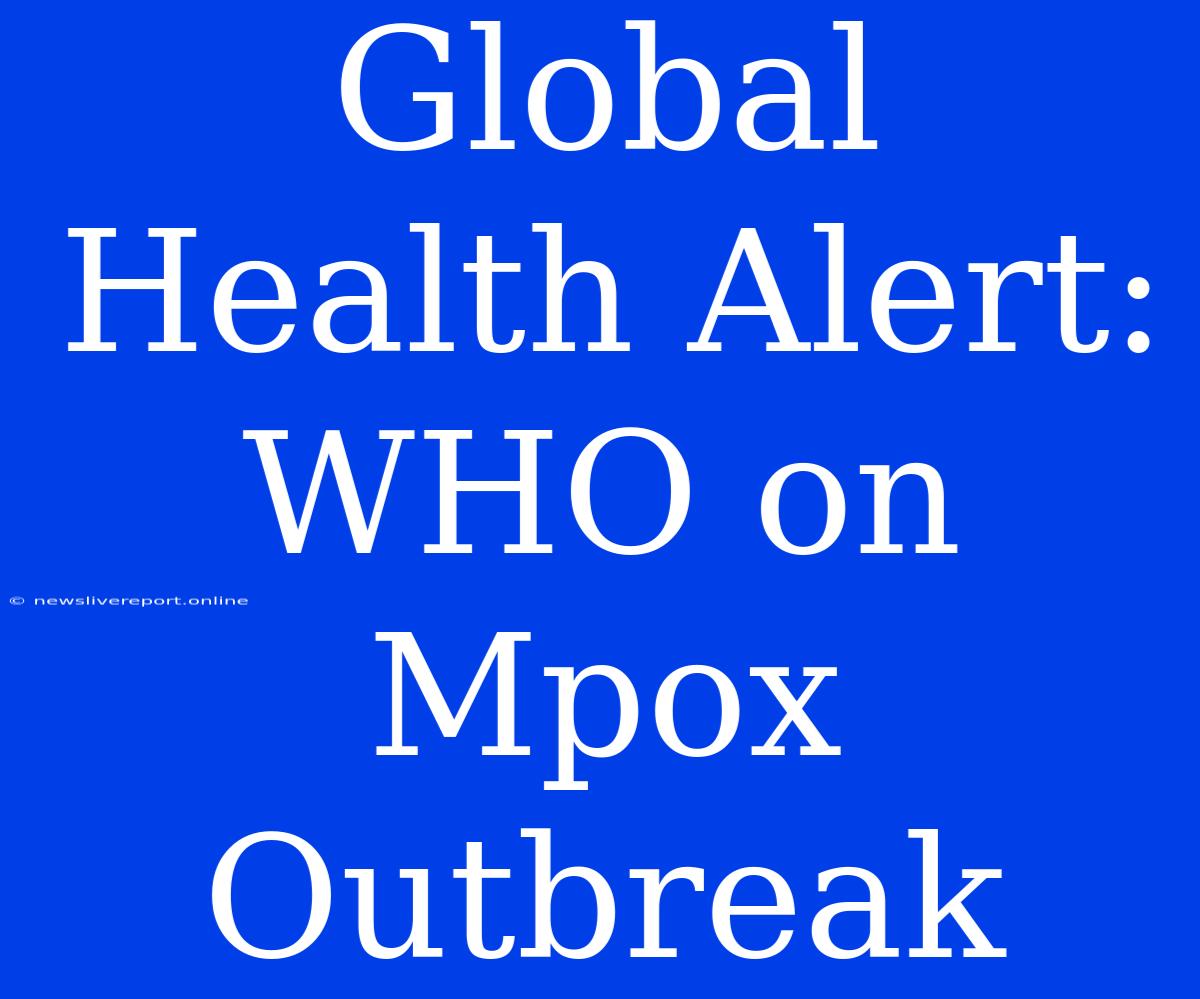Global Health Alert: WHO on Mpox Outbreak
The World Health Organization (WHO) has declared the current mpox outbreak a global health emergency, prompting heightened concern and action worldwide.
The declaration, issued on July 23, 2023, signifies the organization's recognition of the escalating threat posed by the virus. This article delves into the WHO's declaration, the evolving situation, and what it means for individuals and nations.
Understanding the Mpox Outbreak
Mpox, formerly known as monkeypox, is a viral disease that can cause a range of symptoms, including fever, rash, and swollen lymph nodes. It is spread primarily through close contact with an infected person or animal, and can also be transmitted through contact with contaminated materials.
While previously confined to Central and West Africa, the current outbreak has seen a rapid spread to numerous countries across the globe, with cases reported in all six WHO regions. This unprecedented geographic expansion has raised significant concerns about the virus's potential to establish itself as a widespread threat.
Why the Global Health Emergency Declaration?
The WHO's declaration of a global health emergency is not taken lightly. This designation reflects a serious judgment that the outbreak poses a significant risk to global health security.
Here are key factors contributing to the decision:
- Rapid Spread and Unprecedented Geographic Distribution: The virus's rapid spread beyond its traditional endemic areas highlights its potential for widespread dissemination.
- Limited Access to Vaccines and Treatments: While vaccines and treatments are available, access to them remains limited, particularly in lower-income countries, creating disparities in preparedness and response.
- Challenges in Disease Surveillance and Reporting: The lack of robust surveillance systems in some regions poses a challenge to tracking the outbreak's trajectory and implementing effective control measures.
What Does the Declaration Mean?
The WHO's declaration triggers a number of actions, including:
- Increased Funding and Resources: The declaration aims to mobilize resources and funding from governments, organizations, and individuals to support global efforts in combating the outbreak.
- Enhanced International Coordination: The WHO will facilitate closer collaboration and information sharing among member states to coordinate response efforts and leverage expertise.
- Strengthened Surveillance and Response: The declaration emphasizes the need for enhanced disease surveillance and reporting, along with improved testing and treatment capacity.
What Should Individuals and Nations Do?
The declaration serves as a call to action for individuals and nations alike. Here are some steps that can be taken:
Individuals:
- Stay Informed: Stay updated on the latest information about the mpox outbreak through reliable sources like the WHO and local health authorities.
- Practice Safe Contact: Be mindful of close contact with individuals who might be infected. Practice good hygiene, including frequent handwashing and avoiding sharing personal items.
- Seek Medical Attention: If you experience symptoms consistent with mpox, consult a healthcare professional promptly.
Nations:
- Increase Surveillance and Testing: Implement robust surveillance systems to monitor the outbreak's spread and facilitate early detection of cases.
- Expand Vaccine and Treatment Access: Ensure equitable access to vaccines and treatments for all populations, particularly those most vulnerable.
- Promote Public Health Education: Educate the public about the virus, its transmission, and prevention measures to empower individuals to protect themselves and others.
Looking Ahead
The WHO's declaration marks a critical juncture in the global response to the mpox outbreak. By prioritizing collaboration, resources, and public health education, the world can effectively address this emerging threat and prevent its further spread. It is crucial to stay informed, practice safe habits, and work together to combat this global health challenge.

